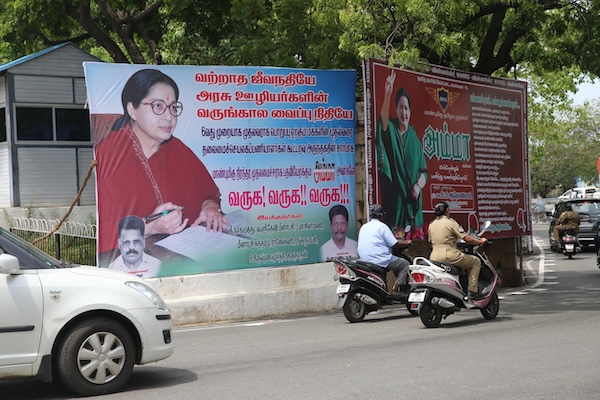.png)
There Should Always be Food on RBI’s Inflation Plate
As India debates whether food prices should be excluded from inflation targets, the RBI will find itself balancing political pressure with institutional credibility. The RBI must remember that inflation is not a percentage point; it is the price of a plate of food.


Dr. Srinath Sridharan is a Corporate Advisor & Independent Director on Corporate Boards. He is the author of ‘Family and Dhanda’.
August 26, 2025 at 5:20 AM IST
For years, we believed in the certainty of central bankers, their quiet confidence that the careful setting of short-term interest rates could tame inflation. Yet today, with the uncertain entities of geopolitical volatility and the turmoil of economic pressures, the questions are loud, the answers hesitant, and the rarefied world of central banking feels less certain than ever before.
Orthodoxy is not an archaic relic. It is a set of values and practices that have allowed the RBI to remain steady when global finance reeled and when domestic markets convulsed. Orthodoxy gave the RBI an anchor through the Asian financial crisis, the global meltdown of 2008, the pandemic shock, and countless domestic pressures. The conservatism it embodied was wisdom born of understanding that monetary actions reveal their consequences only after time has passed. As Milton Friedman once reminded us, “Monetary actions affect economic conditions only after a lag that is long and variable.” Transmission lags are the unseen threads that connect today’s decisions to tomorrow’s household budgets.
Back home, the Reserve Bank of India is in transition, with a new team shaping the Monetary Policy Committee and a new chapter unfolding in its institutional story. What hangs in the balance is not only the trajectory of interest rates, but also the very orthodoxy that has defined India’s central banking tradition for decades. The new MPC framework is designed for transparency and accountability, but it is also a reminder that the faces and voices guiding policy are changing. With no vestiges of the old guard, the question is whether this will mean a decisive break with the past.
This raises a larger question: Does the new MPC mark a break with the conservatism and orthodoxy that have long defined Indian monetary policy? Orthodoxy was never inertia; it was discipline. It was the ballast that kept the RBI steady through global crises, domestic shocks, and sudden black-swan events.
The Governor has often been described as the punch-bag of stakeholders, forever absorbing political demands, market anxieties, and public frustration. The danger is not in that role, but in forgetting that a central bank must be more than an arena for endless tug-of-war. Yet every word or sigh of the Governor is a signal that the markets watch carefully.
Food Inflation
Into this delicate setting enters the proposition that inflation targets and MPC deliberations should exclude food inflation. The argument is tempting. After all, food price shocks often arise from supply-side events beyond the reach of monetary tools, and vegetables in particular have placed the RBI in a bind.
But to step away from food inflation is to risk detachment from lived reality. As former Governor Raghuram Rajan said in 2014, “In India, inflation is what the poor man eats. Food is where inflation is most keenly felt.” The price of dal, chawal, and bhaji is what defines inflation for most Indian households. A central bank that claims success while citizens face spiraling food costs risks a profound credibility gap.
There is also the deeper issue of institutional independence. The hard truth is that no central bank is absolutely independent. The RBI, like all others, draws its authority from the state and its capacity from government backing. Yet over the years, the orthodoxy of central bank independence has been carefully nurtured. As former RBI Governor C. Rangarajan reminded us, “The credibility of monetary policy depends critically on the independence of the central bank in the conduct of monetary policy.”
Across economies, this faith rested on a simple belief that public trust would be stronger if monetary policy was entrusted to technocrats rather than political expediency. From the 1990s onward, this principle of separation became the bedrock of global monetary frameworks.
But the world changed after 2008. Central banks everywhere expanded their mandates, from price stability to financial stability to broader developmental objectives. They embraced unorthodox policies in the face of crises. As Mario Draghi declared in July 2012, “Within our mandate, the ECB is ready to do whatever it takes to preserve the euro. And believe me, it will be enough.” Those words captured the global shift from orthodoxy to unorthodoxy, from restraint to activism. Now, in 2025, as India debates whether inflation without food inflation should become the new standard, the question is whether the RBI is about to embark on its own unorthodox journey.
This is not merely a technical adjustment. It is a question of values and of purpose. To define inflation without food is to redraw the social contract between the central bank and citizens. It is to say that stability is measured by abstract numbers, not by what families pay in the market. For a country where nearly half the CPI basket is food, that would not be a small step, but a seismic shift.
Yet the new RBI does not appear to be abandoning orthodoxy outright. Its discussion paper affirms the credibility of the current framework and gently warns against discarding headline inflation as the target. It acknowledges debate, even invites feedback, but holds on to continuity as the anchor of trust.
Institutional Memory
The biggest risk for a monetary regulator is not policy error, but forgetfulness. To drown in macroeconomic ratios and abstract rhetoric while ignoring what inflation means in real life is to lose relevance. The RBI must remember that inflation is not a percentage point; it is the price of a plate of food.
And so, the story circles back to the larger theme. Is New India asking for a New RBI?
If so, is that a political or social ask? That newness need not mean unmooring. Orthodoxy is not an enemy of change. It is the ballast that makes change survivable. A new orthodoxy may indeed emerge, shaped by new voices and new frameworks. Whether we call it evolution or reinvention, it must remain true to the central promise of monetary policy, that stability must be measured not in technical elegance, but in the everyday security of citizens.
Well, time will tell.
It is also why food cannot be wished away. To exclude dal, chawal, and bhaji from inflation targets would be to exclude citizens from the conversation. The government’s preference for core inflation is understandable, but the RBI’s independence is measured by its ability to resist the temptation of easier optics. A central bank can never be wholly independent from government authority. Still, its credibility depends on showing that its compass points to the citizen first, not to the convenience of political arithmetic.
The role of the Governor has always been to absorb the blows, to be the punching bag when prices rise and growth slows. But the job is not to start the party with new fashions in monetary doctrine.
This is why the story of the RBI today is one of restraint.



